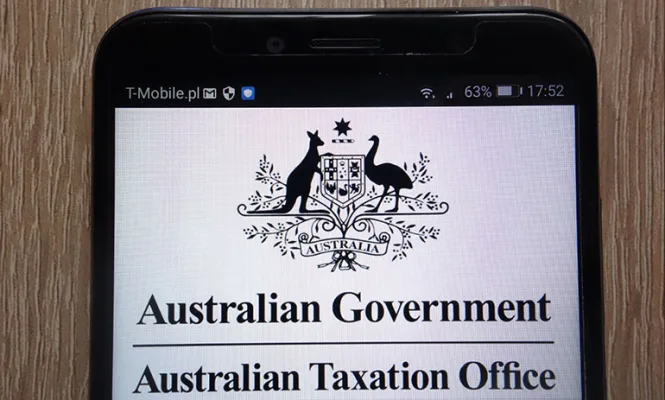As individuals and businesses navigate through the various tax laws and complex investment decisions, the question of whether financial advice is tax-deductible emerges as a crucial consideration.
With this, it’s safe to say that the expertise offered by accountants stands as a superior option, not only for their proficiency in tax matters but also for the broader spectrum of services and knowledge they provide.
In this article, we will delve into which financial advice and services are actually tax deductible, as well as the advantages of considering accountants, shedding light on why opting for their expertise proves to be a prudent choice in maximizing both financial efficiency and compliance.
The Role of Accountants
Before we go through the various financial advice, services and fees that are tax deductible, it is crucial to grasp the significance of engaging professional accountants for this purpose, as opposed to attempting it independently.
Extensive Insights and Expertise in Tax Laws and Regulations
Before you seek advice from a tax accountant, be very careful that you find one that is experienced in the field. Most tax agents in Australia are only providing tax return services, and won’t provide any tax planning advice. One of the key advantages of engaging experienced tax accountants is their deep understanding of tax laws and regulations. Superior tax accountants are trained professionals with expertise in navigating the complex landscape of tax laws, ensuring that their clients remain compliant with applicable laws while maximizing tax-saving opportunities.
The Comprehensive Nature of Accountant Services
Beyond their proficiency in tax matters, experienced accountants offer a holistic approach that extends far beyond mere compliance with tax regulations. Accountants take into consideration the broader financial landscape, encompassing factors such as budgeting, cash flow management, risk mitigation and more.
Understanding Tax Deductibility of Financial Advice
It’s essential to understand that, generally, the cost of advice on tax affairs and other financial advice fees can indeed be deductible as it is an expense incurred that produces assessable income. However, for detailed and accurate handling of such deductions, hiring a professional for these matters is considered a more reliable option.
Accountants bring the expertise required to navigate through tax legislation and maximize the financial benefits of such deductions, ensuring compliance and optimizing your tax return whilst potentially uncovering other areas of tax efficiency.
Financial Advice Types and Fees That Are Tax Deductible
Ongoing Asset Management Fees
Regular payments made for the management of your existing investment portfolio may be tax deductible, particularly if they relate to any asset that produces assessable income, for instance, a rental property.
It is important to consider that expenses associated with non-income generating items in your investment portfolio might be subject to limitations on deductibility. A few of them include private loans and insurance premiums.
Arrangement Fees for Investment Loans
When seeking financial advice for an investment loan, there is a fee associated with arranging the loan, which is directly related to obtaining funds for investments that generate income.
Do note that the loan arrangement fees can only be tax deductible if the loan is directly associated with generating income. Therefore, if the loan is used for the acquisition of assets that result in producing assessable income, you are eligible to add the arrangement fees as part of the other deductions from your taxes.
On the other hand, if the loan is used to obtain assets that do not generate assessable income or is utilized for personal purposes, the fees are not deductible.
Superannuation Fund Expenses
You can claim deductions for admin fees, investment management fees, and advisory fees that are in relation to your superannuation fund. In order to be eligible for the deductibility, the said expenses must contribute directly to improving your superannuation fund’s compliance as well as performance.
Actuarial Fees
Engaging actuarial advice to assess and evaluate the financial feasibility of specific plans and investments allows you to deduct the associated expenses or costs.
Accountancy Fees
Fees paid to accountants for record-keeping of finances, preparation of taxes, as well as services that are compliance-related are all deductible.
Audit Fees
Fees for the audit of financial statements to ensure their integrity and accuracy are included in the list of entities that are tax deductible.
Key Takeaway
Each of these types of advice and fees can be beneficial, as long as they are appropriately aligned with the Australian Taxation Office (ATO) regulations. It’s essential for businesses and individuals to fully comprehend the extent of these fees and services to legally benefit from them as deductions. For more details, please refer to the Tax Determination TD 2023 D4.
Financial Advice Types and Fees That Are Not Tax Deductible
Initial Investment Advice and Financial Plan Development
Payments made for general financial advice and plans or initial investment advice are generally not eligible for tax deductions, since these fees are not yet contributing to your assessable income.
It’s simply a capital cost or capital expense that sets the stage for future income generation, and it is advice received when you are considering investments but not yet committed.
Advice for Non-assessable Pension Income
The costs associated with seeking advice that’s concerning non-assessable pension income are generally not eligible as a tax deduction.
Given that this income isn’t subject to taxation, expenses accrued for obtaining advice concerning it are not deductible.
Cash Flow Management
Tax deductions cannot be claimed for fees linked to financial advice that isn’t related to earning assessable income, such as cash flow management and personal budgeting guidance. This is due to the fact that these expenses are categorized as personal and are not contributing to the generation of income.
Conclusion
In conclusion, the question of whether financial advice fees are tax-deductible underscores the importance of engaging accounting professionals who possess the requisite expertise and experience.
While various financial advisors may offer guidance on tax matters, tax accountants and planners emerge as the best option due to their comprehensive knowledge and specialized skills. By leveraging the expertise of accountants, individuals and businesses can maximize tax efficiency while remaining compliant with regulations.
FAQ
What’s the difference between a financial adviser and an accountant?
A financial adviser and an accountant serve distinct but potentially complementary roles within the area of financial management. A financial adviser specializes in providing advice designed to help individuals with budgeting, retirement planning, investing and more.
In contrast, a tax accountant’s expertise lies in the systematic recording, analyzing, and reporting of financial transactions. They handle tax preparation and auditing and can furnish financial statements and reports that aid in making business decisions.
Experienced tax planners are making up only a small portion of tax accountants in Australia. The ultimate aim for advanced tax planning is to maximize your long term wealth, even multiply retirement savings if you plan early. Considering how much tax we are paying in Australia – at about one quarter of our gross income and about $35k each household every year, tax planning can be a lot more powerful than financial planning. Please don’t hesitate to refer to our online YouTube videos.
If I attend a financial seminar, under what circumstances can I deduct the expense?
Attending a financial seminar might be tax deductible if the seminar’s primary purpose is to improve and generate income from your existing investment portfolio. General financial education seminars are not deductible.
How can I get a quote for your fees?
To obtain a personalised quote for our fees, you can click here.
Should financial advisers be members of the Financial Advice Association Australia?
While not mandatory, their association with this financial planning association underscores their commitment to continuous professional development and staying up to date on industry changes.





